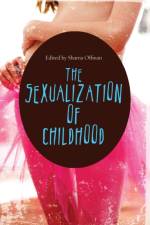av Sharna Olfman
1 431
A stellar group of authors from across disciplines explains the alarming increase in the use of psychotropic medications, questions the causes, and presents disturbing thoughts regarding this phenomenon and the risks it creates for children. They take an in-depth look at the conditions that have led to drugging our children, and stress how emotional, social, cultural, and physical environments can both damage and heal young minds. And they challenge the model that maintains that psychological disturbance is genetic and thus requires medication. This is riveting reading for all who care about the youngest members of society.Over the past 15 years, there has been a 300 percent increase in the use of psychotropic medications with girls and boys under the age of 20, and prescriptions for preschoolers have skyrocketed. A stellar group of authors from across disciplines explains this increase, questions the causes, and presents disturbing thoughts regarding this phenomenon as they describe the risks it creates for children. While there are certainly extreme cases where drugs are the only option, medication rather than psychotherapy and counseling has become the first choice for treatment rather than a last resort.The experts who joined forces for this book take an in-depth look at the conditions that have led to drugging our children, and stress how emotional, social, cultural, and physical environments can both damage and heal young minds. The so-called medical model, one maintaining that psychological disturbance is genetic and thus requires medication, is challenged in this volume. Contributors range from a pediatrician who has testified before Congress and been featured in a Time magazine cover story, to a top child psychiatrist who is an official for the American Academy of Child and Adolescent Psychiatry, along with a well-known child psychiatrist, psychologists, environmentalists, and a public policy consultant. This is riveting reading for all who care about the youngest members of society.Among other issues, this work looks at controversy over whether psychiatric medications are safe or effective for children-and what little we know about their effect on still-developing brains-as well as the role of corporate interests in the increased use of psychotropics for children. Chapters address the role of environment in both causing and curing disorders more and more often diagnosed in our youngsters: from ADHD, depression, and anxiety to eating disorders. The core questions addressed by this sage group of contributors are these: Why are so many children being diagnosed with psychiatric disturbances and given drugs? Why have drugs become the first treatment of choice to deal with those disorders?


